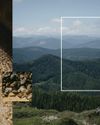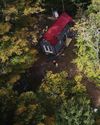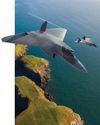
TABLE SAW HORROR STORIES ABOUND. IF YOU'VE never had a mishap with one of these machines, count yourself among the blessed few. I've worked with countless men with scars and missing fingers, and I've had my share of close calls. Decades ago, I worked at a lumberyard where the foreman told me to be careful using the table saw that was about to become my main work station. "The last guy," he said, "lost four fingers." It was a shame, he said, the guy was so young.
You might expect this tale from a lumberyard, most of which are pretty rough places. But the need for safety in the home workshop is no less urgent. People who spend all week behind a desk may be ill-prepared to step behind a table saw on the weekend. That's why we named the SawStop Compact Table Saw ($899) a Tool Award winner this year. With a tabletop measuring 23 inches wide by 22% inches deep and weighing only 68 pounds, it's perfect for the home workshop or contractors who need a lightweight mobile table saw.
Most important, it's equipped with an industrial-duty safety feature: Its blade will stop in a fraction of a second and retract below the table if it contacts human flesh.
Introduced in the early 2000s, SawStop set out to put an end to table saw horror stories. When I saw it demonstrated in 2000 at the International Woodworking Fair in Atlanta, Georgia, I was flabbergasted. By then, I had already used saws of every size, shape, and description, from large and well-maintained machines in cabinet shops to wobbly little monsters propped up on sawhorses. There was even a big four-blade behemoth powered by a leather belt and a gigantic floor-mounted motor.
この記事は Popular Mechanics US の September - October 2023 版に掲載されています。
7 日間の Magzter GOLD 無料トライアルを開始して、何千もの厳選されたプレミアム ストーリー、9,000 以上の雑誌や新聞にアクセスしてください。
すでに購読者です ? サインイン
この記事は Popular Mechanics US の September - October 2023 版に掲載されています。
7 日間の Magzter GOLD 無料トライアルを開始して、何千もの厳選されたプレミアム ストーリー、9,000 以上の雑誌や新聞にアクセスしてください。
すでに購読者です? サインイン

ONE OF THE 'GREATEST THREATS' TO THE PACIFIC NORTHWEST ISN'T WHAT YOU THINK.
EXPERTS ARE PREPARING THE REGION AGAINST THE THREAT OF DANGEROUS VOLCANIC MUDFLOWS, KNOWN AS LAHARS, WHICH COULD INUNDATE THE COMMUNITIES SURROUNDING MT. RAINIER IN AS LITTLE AS 30 MINUTES.

THE WORLD'S TOUGHEST ROW
They rowed 3,000 miles across the Atlantic, battling unpredictable weather, chaotic seas, and finicky equipment. But what they discovered gave them profound new insights into the power of the ocean.

HOW TO DIY OFF-GRID SOLAR
SPEND THE TIME UP FRONT AND PLAN IT CAREFULLY TO AVOID DISAPPOINTMENT

Are We on the Verge of an ARMS RACE in SPACE?
RUMORS OF A RUSSIAN SPACE NUKE, ALONG WITH OTHER SATELLITE-TARGETING WEAPONS, HAVE MADE GEOPOLITICAL TENSIONS EXTEND INTO ORBIT.

Fresh Fingerprints on an Ancient Statue
A CLAY FIGURINE HAS SPENT MILLENNIA incomplete, waiting at the bottom of a lake for its long-dead craftsman to finish the Iron Age-era statuette.

Quantum Entanglement in Our Brains
IT HAS LONG BEEN ARGUED THAT THE human brain is similar to a computer. But in reality, that's selling the brain pretty short.

The Tools of Copernicus
WAY BACK IN 1508, WITH ONLY LIMited tools at his disposal, Nicolaus Copernicus developed a celestial model of a heliocentric planetary system, which he described in hist landmark work De revolutionibus orbium coelestium. It was a complete overhaul of our conception of the universe-one that, unfortunately, earned him the ire of the Catholic church for decades after his death-and forever changed the way we look at the stars.

Building a Sixth-Generation Bomber Raptor
THE GLOBAL COMBAT AIR Programme (GCAP)-a project by the U.K., Italy, and Japan to develop a sixth-generation stealth fighter-has been busy at the drawing board reshaping its vision of the future of air warfare. And judging by the new concept model unveiled at this year's Farnborough air show, that future has big triangular wings.

The Electroweak Force of the Early Universe
TODAY, THE UNIVERSE AS WE KNOW IT IS governed by four fundamental forces: the strong nuclear force, the weak nuclear force, electromagnetism, and gravity.

This Ancient Fossil With a Brain and Guts
WE KNOW WHAT FOSSILS LOOK like. For example, typical dinosaur fossils are bones turned to stone and preserved from the passage of time, located, if we're particularly lucky, in large collections that can be reassembled to represent the beast they used to prop up in their entirety.